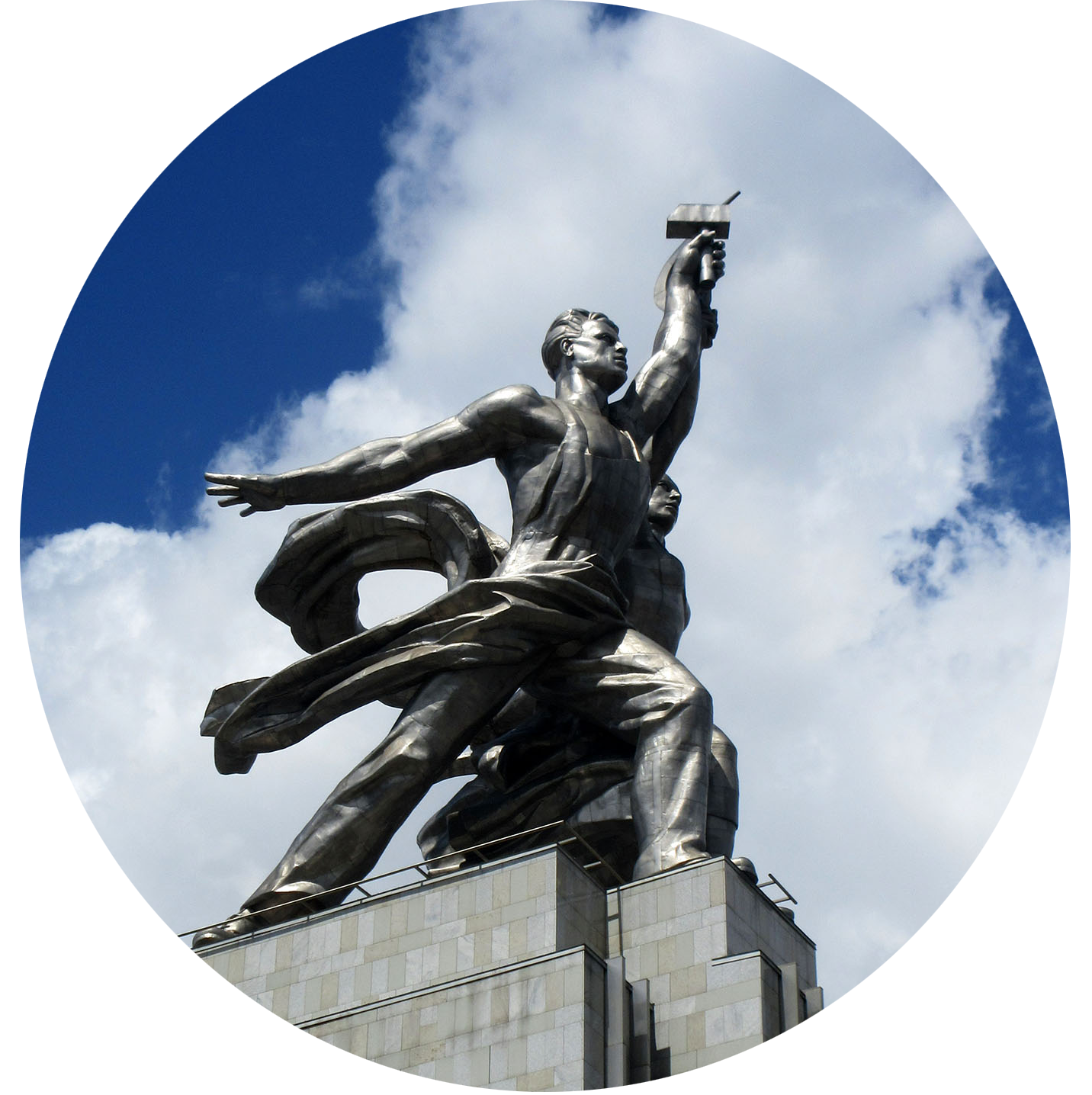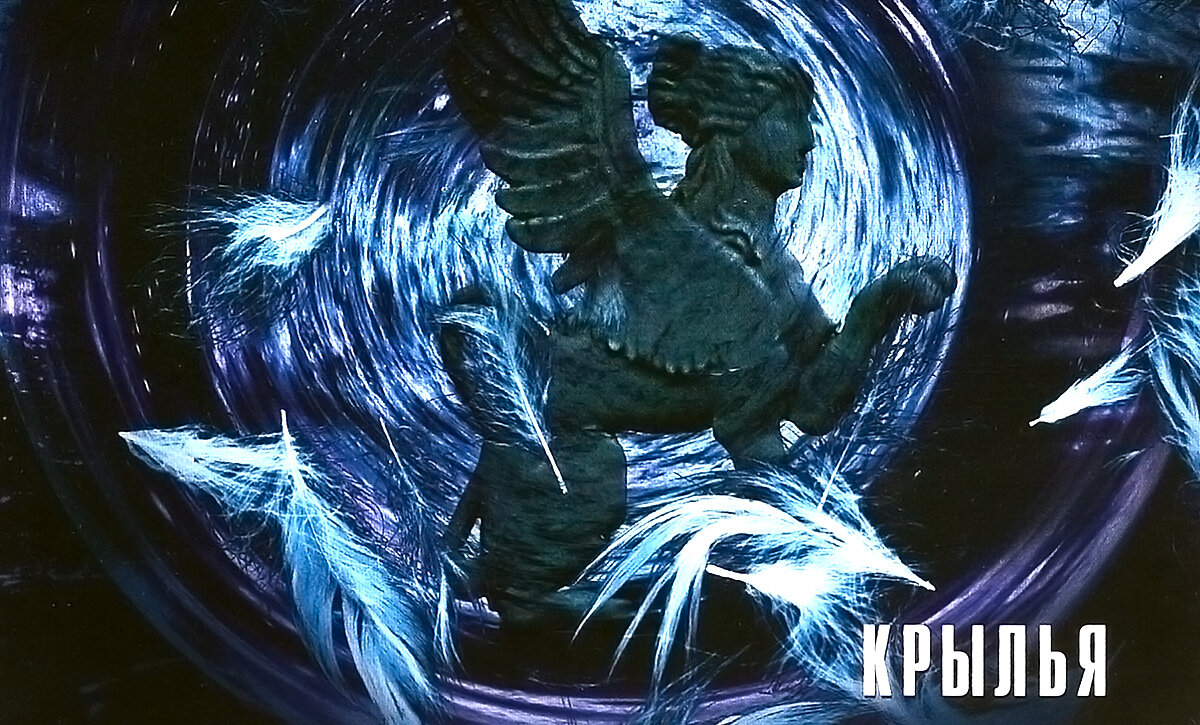
City of My Childhood
This song, from a collection of covers by Civil Defense entitled Звездопад (Starfall), is Yegor Letov’s rendition of a Soviet classic sung by Edita Piekha. Sung by Letov, the song takes on a new dimension of bitter irony.
Гражданская оборона: The Zoo
I’m looking for people like me, / Crazy and weird, / Crazy and sick. / And when I find them / We’re getting out of here / We’re heading out into the night / We’re leaving the zoo!
Fa-Fa-Fa
A trans-sense flavor is lent even to words that are otherwise intelligible; whether through creating new and bizarre compound words, or by breaking up ordinary words syllable-by-syllable, Auktyon “makes language strange,” or “defamiliarizes” it, as the Russian formalists would say.
From the Life of Planets
“We took only four unmade films from among a huge number of others, and wrote music for them. More precisely, we wrote music in which one can see these films, imagine what they might have been like”
Walks on the Water
To interpret the song quite straightforwardly, Andrew wants “the secret” revealed — presumably, the secret of how to walk on water and save those thought lost; Christ says there is no secret — just go hang on the cross, and then come back!
Good Night
The song reads like a Soviet-era Plato’s Cave — a nocturnal landscape filled with people intent on sleeping, and a chosen few who insist on leaving this world of shadows behind.
Cursed Thoughts
While many believe this to be an authentic Russian folk song, in fact it was written by the bard Юлий Ким, with the original title Губы окаянные (cursed lips).
The Parachutist
If I had to single out one song as Pyotr Mamonov’s masterpiece, I think it’d be this one — especially given the magisterial, utterly stupefying live performance (!) featured below, which is NOT TO BE MISSED (the same could be said of many of his live performances).
We March in the Silence
I sometimes joke with students that if one were to summarize the entire Soviet project with a single Russian word… then my vote would be “идём” — “we are underway, we are on the march.” The verb appears on countless propaganda posters.
A Song Without Words
This may be Tsoi’s most direct, most concise philosophical statement, and its very title announces the sense of paradox that lies at its center. Certainly, the song does have words, but perhaps those words are incapable of adequately expressing the essence of life’s mysteries.
The Last Hero
Here’s the title track from a KINO album released in 1989. It is very typical of Viktor Tsoi’s songs in its ironic depiction of a “hero” who seems lonely, alienated, and plagued by a sense of purposelessness.
Source of Infection
A song for your COVID quarantine soundtrack, from one of the funniest and most bizarre of Russian rock bands, Zvuki Mu, led by the utterly unhinged Pyotr Mamonov. Here’s a song that’s typical in terms of its zany humor, its absurdist logic, its cartoonish violence. And, by God, it’s DANCEABLE.
A Star Named The Sun
As is quite typical with Tsoi, what one might read as a political critique of the Soviet regime in particular is likely better understood as a general philosophical or ethical statement, as a depiction of of universal human experience and history, most notably here of human vanity.
Watch Out For Yourself
Today, another well-known song from Tsoi about the uncertainty of life, just perfectly suited to the era of COVID (with “epidemic” as one of the many “black holes of the universe” we live in).
Eighth-Grade Girl
Today's song is yet another extremely well-known song by Viktor Tsoi — a rather humorous depiction of adolescent love between an "eighth-grade girl" and a boy who is, ahem, a bit older! I’ll leave it for readers to speculate as to the dynamics of this relationship.
A Pack of Cigarettes
The first verse of this song is very simple, but the second is much more difficult to translate, because it involves twists on three Russian sayings. I’ll do my best to explain; interpreting the meaning is up to you!
Transfer to the North
Today’s song can serve as an introduction to an entire genre of Soviet music — the songs of the Gulag — that had a noticeable influence on late Soviet rock, most notably in terms of the the recurring themes of imprisonment and escape, whether understood literally or metaphorically (existentially!).




















